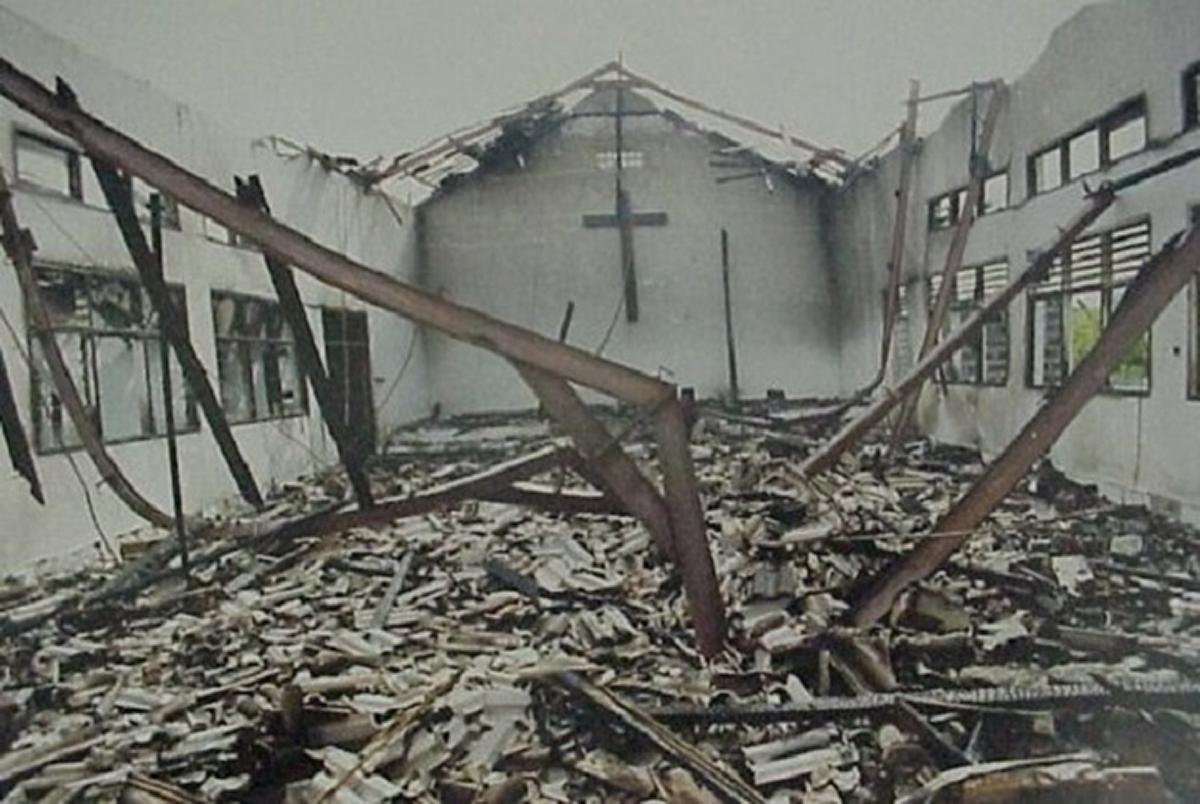Muslim Jihadi Massacre Harvests 40 Christians At Worship
St Francis Xavier parish was attacked by Muslim terrorists but only emboldens Christian faith.

One year after the attack on St. Francis Xavier Church in Ondo, Nigeria, none of the culprits have been brought to justice. But their victims wear their scars as “badges of honor,” and their faith is as strong as ever.
A Nigerian priest has called for the beatification of some 40 Christians who were killed in an attack on the parish of St. Francis Xavier in Ondo, Nigeria on June 5, 2022. The attack, which came to be known as the Pentecost Sunday Massacre, also wounded dozens of other Christians, many of whom were left with permanent disabilities.
One year later, in an interview with Aid to the Church in Need (ACN), Father Emmanuel Faweh, the rector of St. Albert’s Institute in Nigeria, has come out in favor of beatification. “For me, as a priest in the Roman Catholic Church, it would not be a bad idea because they died professing their faith.”
They died while worshipping God in his own house, so [beatification] would go a long way toward strengthening the faith of those who are practicing in war-torn areas, or in places like northern Nigeria, where most Christians are persecuted.”
The testimonies of the survivors, which ACN published soon after the tragic event, are harrowing, and point to the extreme violence and malice of the terrorists.
The attack on St. Francis Xavier was one of many attacks on Christian lives and property in Nigeria, carried out by Islamist terror groups, armed bandits, and ethnic Fulani tribesmen. Their goals are to drive Christians off fertile lands in central Nigeria and impose Islamic rule in Muslim-majority northern states. That Ondo is in the West, a region not usually subject to attack, is even more cause for concern, because it indicates that the terrorists may be widening their scope of action. But, Father Emmanuel says, if the terrorists behind the Pentecost Sunday Massacre wanted to frighten Christians or weaken their faith, they failed.
“Some of the victims still carry their scars, and they call them their mark of honor, a reminder that their faith will supersede any kind of attack,” he told ACN, citing a victim who attended a celebration of the parish’s reopening this past Easter. “While the celebration was going on, one of the survivors, a nurse who lost both her legs and an eye, was filled with joy and gratitude, and said, ‘I have come with my scars as a badge of honor, and there is nothing on the face of the Earth that will make my faith wane.”
“We remember this attack with mixed feelings. There is gratitude that despite everything that happens, people still profess their faith, but there is also pain, pain that the government, whose sole responsibility is the protection of life and property, has failed to prosecute the criminals who unleashed this attack on very innocent people,” said the rector of St. Albert’s Institute, repeating calls to action already made by other Church leaders.
Justice in this case and many others has been long delayed, but the Christian community has hope that the new government, which was sworn in on May 29, will make a difference. “It is our prayer and hope that the current government will be able to consolidate the fight against terrorism. May this government have the will to name those who sponsor these terrorists, and prosecute them, to discourage these attacks and those who make money off them.”
Meanwhile, the priest told ACN, “we will remain hopeful and focused, and nothing is going to deter us from worshipping our God in truth and in Spirit.”
Filipe d’Avillez writes for Aid to the Church in Need, from where this article is republished.